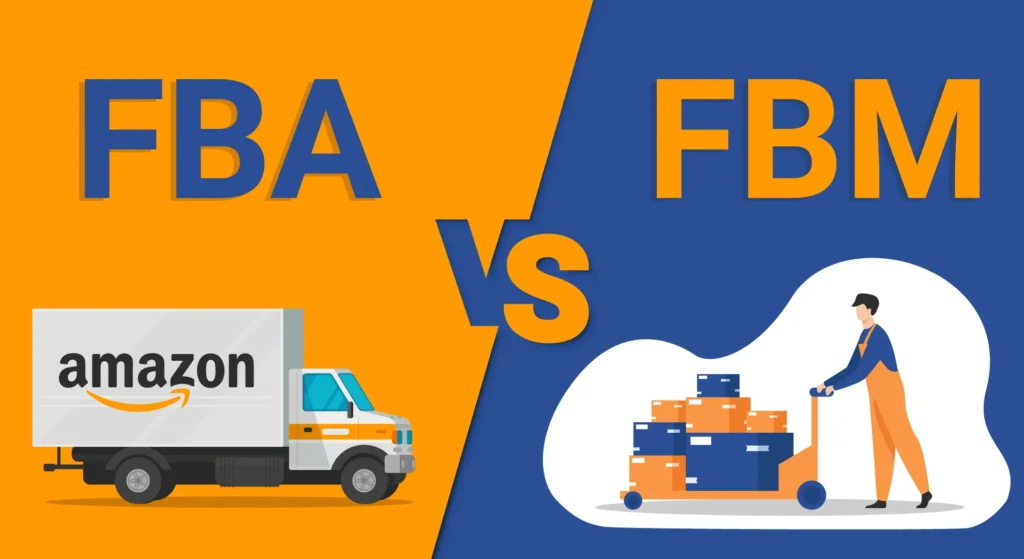
Amazon FBA vs FBM Choosing the right fulfillment option is a critical decision for any Amazon seller. Amazon offers two primary fulfillment methods: fulfillment by Amazon (FBA) and fulfillment by merchant (FBM). Each option has its advantages and disadvantages, and the best choice depends on various factors including your business goals, resources, and product type. At Kavabd, we specialize in guiding businesses through this decision-making process to help you optimize your fulfillment strategy and maximize your success on Amazon. This blog post will compare FBA and FBM, highlight the benefits and drawbacks of each, and explain how Kavabd can assist you in making an informed choice.
Fulfillment by Amazon (FBA) is a service where Amazon handles storage, packing, and shipping of your products. When you use FBA, your products are stored in Amazon’s fulfillment centers, and Amazon takes care of the logistics, customer service, and returns.
Benefits of FBA:
Drawbacks of FBA:
Fulfillment by Merchant (FBM) is a fulfillment method where you handle the storage, packing, and shipping of your products. You list your products on Amazon, but you manage the entire fulfillment process and customer service.
Benefits of FBM:
Drawbacks of FBM:
Choosing between FBA and FBM depends on several factors, including your business model, product type, and financial considerations. Here are some key factors to consider:
At Kavabd, we understand that choosing the right fulfillment option is a crucial decision for your Amazon business. Our team of experts is here to assist you in evaluating your fulfillment needs and implementing the most effective strategy.
Our Services Include:
© Kavabd, 2022. All Rights Reserved
Hi how can I help you?